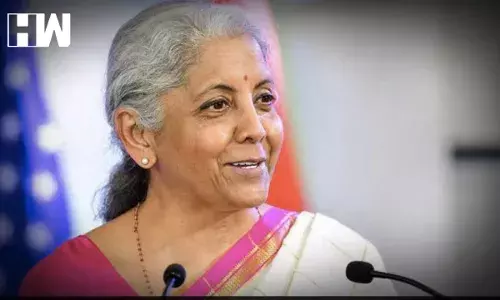New Delhi: The Reserve Bank of India’s (RBI) decision to raise the benchmark lending rate is part of a global synchronised movement by central banks and was only surprising since it occurred between two monetary policy reviews, according to Finance Minister Nirmala Sitharaman.
“Many people were surprised by the time, but the act people thought should have been done anyhow – to what amount could have differed,” she said yesterday at The Economic Times Awards for Corporate Excellence in Mumbai. “It was unexpected because it occurred in the middle of two monetary policy reviews.”
The Finance Minister, who got an award at the ceremony for her handling of the country’s economy during the epidemic, added that the RBI had signalled that it was time to move on inflation in its April policy review.
The minister stated that the central bank’s move will have no impact on the government’s infrastructure investment.
The Reserve Bank of India hiked its key lending rate by 40 basis points to 4.40 percent on Wednesday. The cash reserve ratio was also increased by 50 basis points.
The action was prompted by rising inflation, geopolitical concerns, high crude oil prices, and a worldwide commodity shortage, according to the central bank.
This was the first raise in the policy rate since August 2018, making borrowing more expensive for both businesses and people. The most recent unexpected rate hike cancels out the Covid-supported off-cycle rate drop in May 2020.
For the third month in a row, retail inflation in the country was nearly 7%, remaining beyond the top end of the RBI’s target zone of 2-4 percent.
The minister also stated that buying oil from Russia at a discounted rate makes “great sense,” especially with inflation on the rise.
“I thought we have been spending a lot of time explaining India’s position, not just on the abstentions (on Ukraine) when voting took place (at the United Nations), but also on the fact that if Russia is offering it to us at a discounted rate, we will still be buying it because it makes perfect sense, particularly when the world is stressed out with inflation,” she said.
“I think we’ll go ahead with what is good for the country. We need cheaper fuel. If it is available, why won’t we want to buy it? We will buy it,” the minister added.
The West has imposed severe sanctions on Russia as a result of its invasion on Ukraine. While the United States has prohibited Russian oil imports, the European Union and the United Kingdom have begun phasing out the shipments.
As an independent media platform, we do not take advertisements from governments and corporate houses. It is you, our readers, who have supported us on our journey to do honest and unbiased journalism. Please contribute, so that we can continue to do the same in future.

